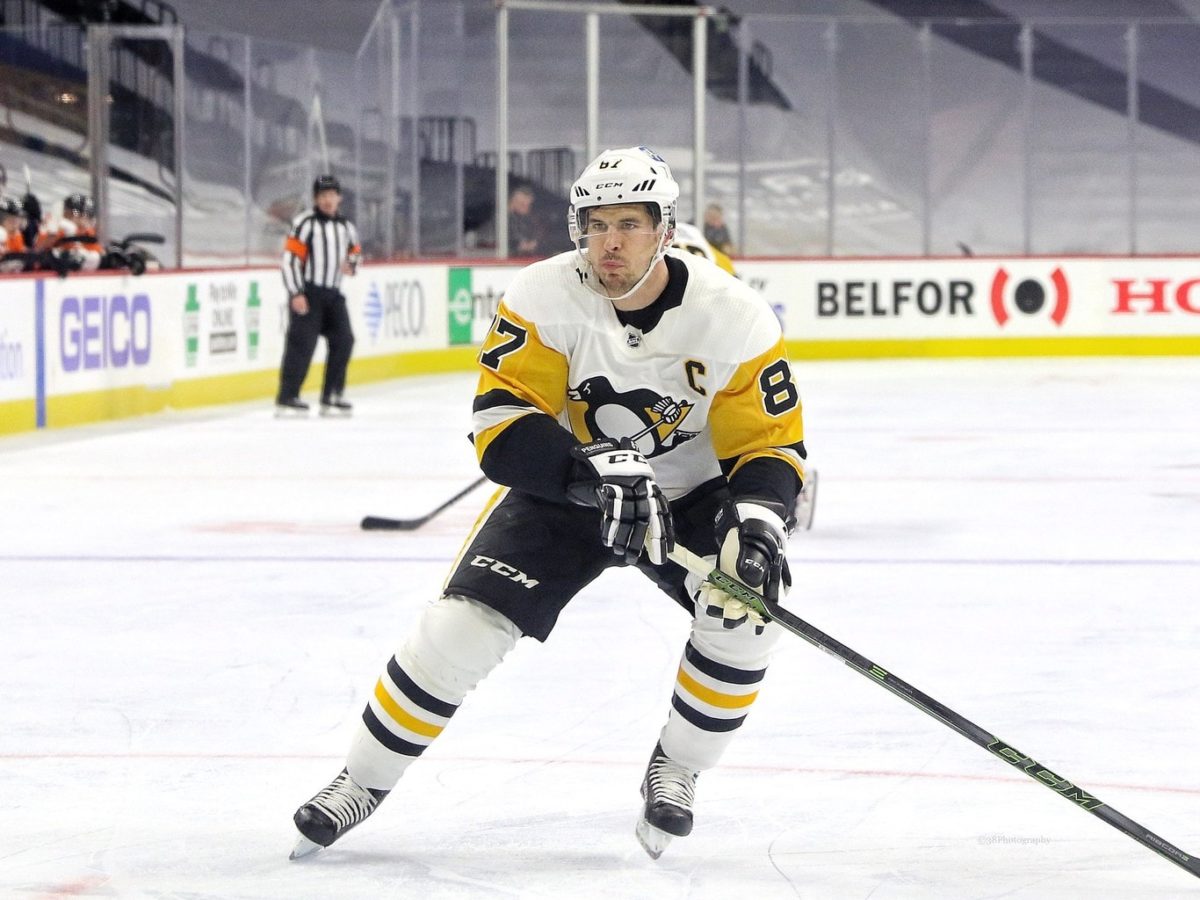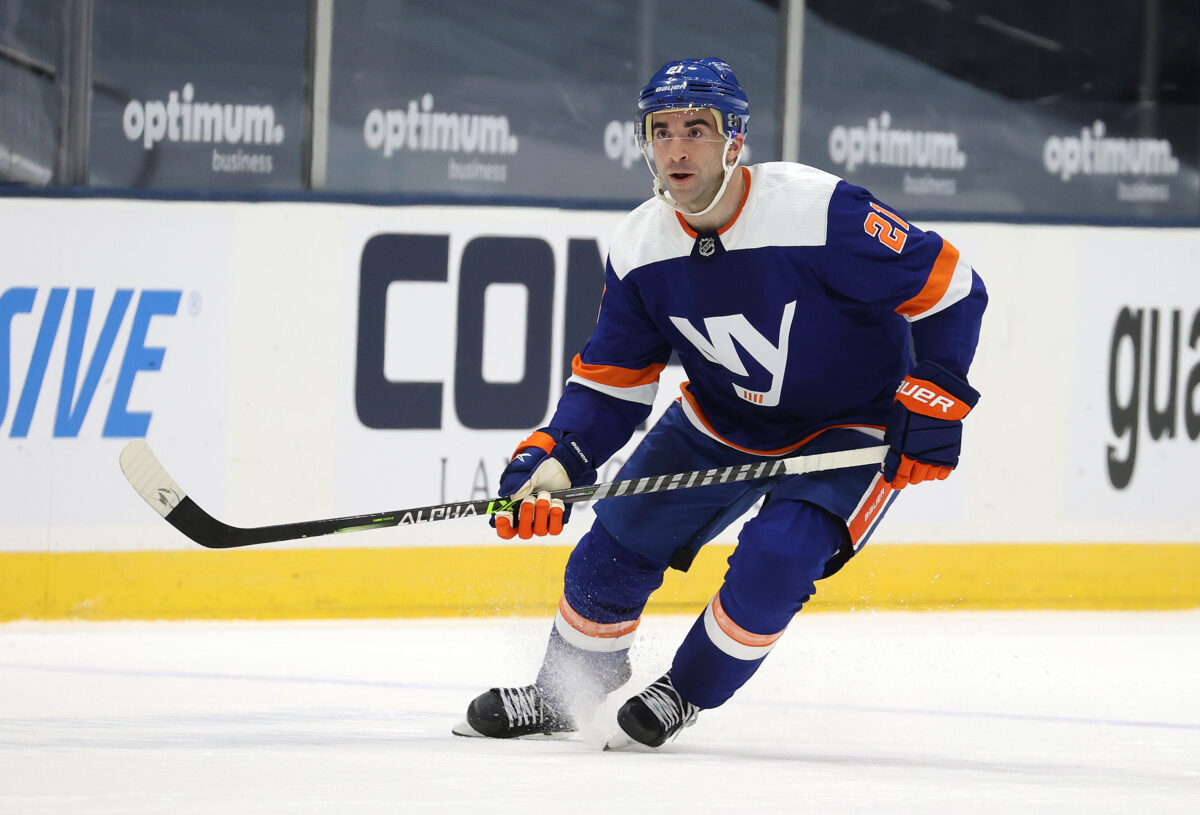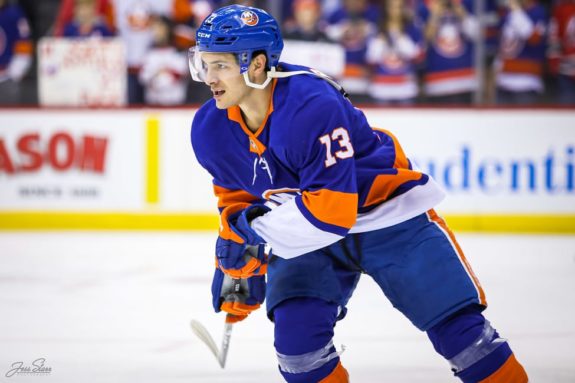The New York Islanders split the first two games of the first-round series on the road against the Pittsburgh Penguins. It was intriguing how they played two entirely different games from Game 1 to Game 2. The Islanders won the first game in a high-scoring, 4-3 overtime victory while the Penguins won the following game in a 2-1 defensive struggle. As the series shifts to New York, head coach Barry Trotz has a lot of questions about the roster, and more importantly about how the team should play in the next two games.
Islanders Might Continue Playing Physical Defense Despite Penalty Risk
The Islanders win games with their defense, specifically, with a defense that is disciplined but can eliminate star skaters with hard hits and rough play. Naturally, the team should continue to play the way they have on the defensive end of the ice considering the success they witnessed in the first two games. While the defense did surrender three goals in the first game, all three of them came when the Penguins were able to establish their speed and thus create open shooting chances on the ice. It’s hard to argue that the Islanders’ defense is at its best, especially against the Penguins when they can play rough along the boards and make it difficult for top skaters like Sidney Crosby, Bryan Rust, and Jake Geuntzel to establish a speed-based game offensively.

The dilemma for the Islanders is whether they should continue to play with this tough edge with the potential risk of drawing penalties in the upcoming games. Fortunately, the penalty minutes were down in the first two games and the Penguins failed to score on the power play in the five opportunities they received. It’s possible the officiating is going to continue to avoid calling penalties and the teams will be disciplined as well, but if the Islanders continue to play hard-hitting hockey, whether it be on the defensive end of the ice or on the forecheck with their bigger forwards like Matt Martin, the penalty minutes can start to pile on.
Considering how the Penguins’ offense can take advantage of the power play and the open shots that would be given, in addition to the likelihood that experienced scorer Evgeni Malkin returns to the lineup after missing the past two games, the question is whether the current style of play can come back to cost them.
The Type of Pace the Islanders Should Play
In a way, the first two games felt unusual and backwards considering the winners of each game. The Islanders, a team that usually wins in defensive struggles where it’s hard to move the puck through the neutral zone, were able to win a fast-paced Game 1 where both offenses were able to thrive, scoring four goals with Kyle Palmieri finding the back of the net twice. The Penguins, a team that has been most successful in fast games where their top skaters are able to create chances in open ice, won a defensive struggle where scoring chances were hard to find and hung on for a 2-1 victory. For the Islanders, the question is what type of game is ideal, and does a game with both teams finding odd-man rushes ultimately benefit or hurt the underdog in the next two games?

While the Islanders were able to win the first game of the series in an open-ice type of game, there are plenty of reasons to believe they will attempt to continue to turn this series into a more defensive one, with both teams struggling to find the back of the net. Aside from the fact that the Penguins’ strength is on the offensive end of the ice and they can outscore any team in the NHL, the Islanders played better in the first two games when they established a disciplined defense that forced their opponents into uncomfortable situations. One of the costly goals in Game 2 came on a Ryan Pulock error, where he whiffed on a pass at the blue line to create a scoring opportunity the other way, hinting that the team played well outside of a few mistakes that cost them a close game.
The Islanders Must Solve the Struggles of the Top Line
It’s clear that the top line struggled in the first two games of the series and has struggled since captain Anders Lee suffered a torn ACL earlier in the season. The Penguins have to be credited for eliminating Mathew Barzal and Jordan Eberle’s ability to create with the skating and scoring capabilities they possess. The line has yet to find the back of the net in this series and ultimately, the coaching staff is going to have to make a difficult decision to either break up the shift or find a skater in one of the other lines to insert alongside Barzal and Eberle.

The Islanders have started Leo Komarov in the first two games on the top line, but the 34-year-old skater has been unable to complement or enhance the play of the rest of the shift, making him the most likely to be replaced on the line. Whether the Islanders decide to start Josh Bailey, the only skater to find the back of the net in the Game 2 defeat, or the young and talented Anthony Beauvillier, who has the ability to break out in this series as a skater who finished the season off strong, the team must find a way to get goals throughout their lineup. However, they must be able to do so without sacrificing the effective play of the second or third lines in the process.
What Else Do the Islanders Need to Consider in the Next 2 Games?
One of the interesting elements of the Islanders’ roster that has to be considered is if the coaching staff will choose to start Braydon Coburn at any point in the upcoming games, as he is a bigger defenseman that the team acquired from the Ottawa Senators at the trade deadline. Coburn has the playoff experience but inserting him into the lineup is costly to the defense with all three pairings playing well in the series thus far. In addition to the possibility of inserting the 35-year-old defenseman, the Islanders have to consider how they will attack Penguins goaltender Tristan Jarry, who allowed three goals in the first game with shots to the glove side, indicating that the offense will try to continue to locate their shots but also continue to attack the net aggressively.
The upcoming games will be telling in determining which team will be able to advance to the next round of the Stanley Cup Playoffs.